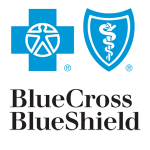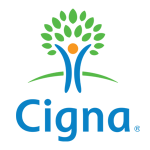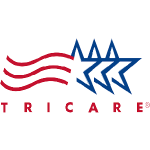Oxycontin (oxycodone) addiction Methadone and Addiction in Naples, Fort Myers, and South Florida continue to grow. Oxycontin and Methadone are a type of pain reliever that is used for severe pain. In fact, and Hydrocodone addiction continues to escalate throughout the country. Other names for pain killers include opioids, Lortabs, Percocets, Fentanyl Patch, MS Contin, and Vicodin.
Who Uses OxyContin?
Individuals of all ages abuse OxyContin – data reported in the National Household Survey on Drug Abuse indicate that nearly 1 million U.S. residents aged 12 and older used OxyContin without a medical reason at least once in their lifetime.
Here are some essential facts.
- Oxycodone mentions in emergency department visits in SAMHSA’s DAWN increased from 4,000 in 1994 to 22,000 mentions in 2002, an increase of 450%.
- About 29% of the oxycodone-related visits involved only oxycodone, 26% involved another drug, 24% involved two other drugs, and 22% involved three or more other drugs.
- The most common substances found in combination with oxycodone and hydrocodone in drug abuse-related emergency department visits were alcohol, benzodiazepines, other opioid pain relievers, and cocaine.
- In 2006, Monitoring the Future Survey reported that 3%, 7%, and 9.7% of 8th, 10th, and 12th graders, respectively, reported non-medical use of Vicodin (trade name) in the previous year. And in 2006 alone, DEA has documented the diversion of millions of dosage units on the drug from rogue pharmacies
- Hydrocodone is the most frequently prescribed opiate in the U.S., with nearly 130 million prescriptions for product containing hydrocodone dispensed in 2006.
OxyContin® has become such an important substance of abuse that once addicted; it becomes difficult to stop without medical intervention. Oxycodone, the generic name for oxycontin, showed a great deal of promise for pain control. The problem with oxycontin is the drug a high Drug tolerance and a great deal of Euphoria. These elements are what make a drug highly addictive and with features of physical dependence.
Suboxone outpatient detox in Naples is fortunately available. Pain Killer addiction recovery prior to this modality of treatment, patients had to be admitted hospitals to be detox from pain killers. The more complicated cases with existing medical problems usually have to be admitted to an inpatient facility. Suboxone has been truly a medical miracle intervention. Leonard Lado MD is a certified and licensed physician to administer Suboxone.
The question then becomes, why has there been a dramatic increase in addictions for pain killers. The increase in pain medication usage is due to several factors, including:
- a trend to reversing the under-treatment of pain,
- more research and improved scientific understanding of pain as a disease,
- increased awareness and education about how to properly treat pain, and
- advances in pharmaceuticals
What is even more interesting is that an estimated 70 million Americans that suffer real pain are undertreated. Thus the physicians are in a dilemma. If you under-treated, you are being negligent and can lose your license. State Pain Relief Acts have been instituted to protect physicians from properly treating pain.
The most challenging choice then becomes is to determine who is having physical pain versus psychological pain. Even more important, who is telling the truth. In my practice, I have treated patients that actually created injuries to make sure they stayed on the medications for pain. Criticism has been flowing from all different directions at the medical profession with allegations of doctors significantly undertreating pain, which has left millions of people struggling for comfort. Jim Guest, Executive Director of the American Pain Foundation, claims, “Over 50 million Americans live with chronic pain. The crime is that treatments and therapies to manage most pain are available, yet most pain goes untreated, undertreated, or improperly treated.” (APF, 2000)
There has been an enormous push from the general population to be treated properly for pain. Lawsuits have been filed, pain campaigns have been run, and even doctor shopping has begun as common practice for patients who feel their physicians do not adequately treat their pain. But within this rush to receive adequate pain relief, there is a danger of overcompensation. The basic fact is there is no definite way for a doctor to tell that a patient is in pain.
In reality, it is all about what the doctor knows should be painful, and the patient’s description of the pain. So, if there is enormous pressure on doctors to aggressively treat the discomfort that the patient is claiming to have, then what is to stop someone from pretending to be in pain in order to take advantage of this fear of undertreating pain? Nothing. Drug-seekers, as they are affectionately known, actively try to fool medical professionals in order to receive opiates and narcotics for their own personal use.
The American Society of Addiction Medicine came out in 1998 with a Public Policy Statement on the Rights and Responsibilities of Physicians in the Use of Opioids for the Treatment of Pain and claimed
Despite appropriate medical practice, physicians who prescribe opioids for pain may occasionally be misled by skillful patients who wish to obtain medications for purposes other than pain treatment, such as diversion for profit, recreational abuse, or maintenance of an addicted state. The physician who is never duped by such patients may be denying appropriate relief to patients with significant pain all too often. Physicians who are practicing medicine in good faith and who use reasonable medical judgment regarding the prescription of opioids for the treatment of pain should not be held responsible for the willful and deceptive behavior of patients who successfully obtain opioids for non-medical purposes. (p. 129-133)
There is no need for families to suffer from Methadone Addiction and Oxycontin Addiction. Suboxone outpatient detox in Bonita Springs, Naples, Fort Myers, and South Florida call Dr. Leonard Lado. Schedule your first narcotic addiction recovery evaluation without waiting any further.









